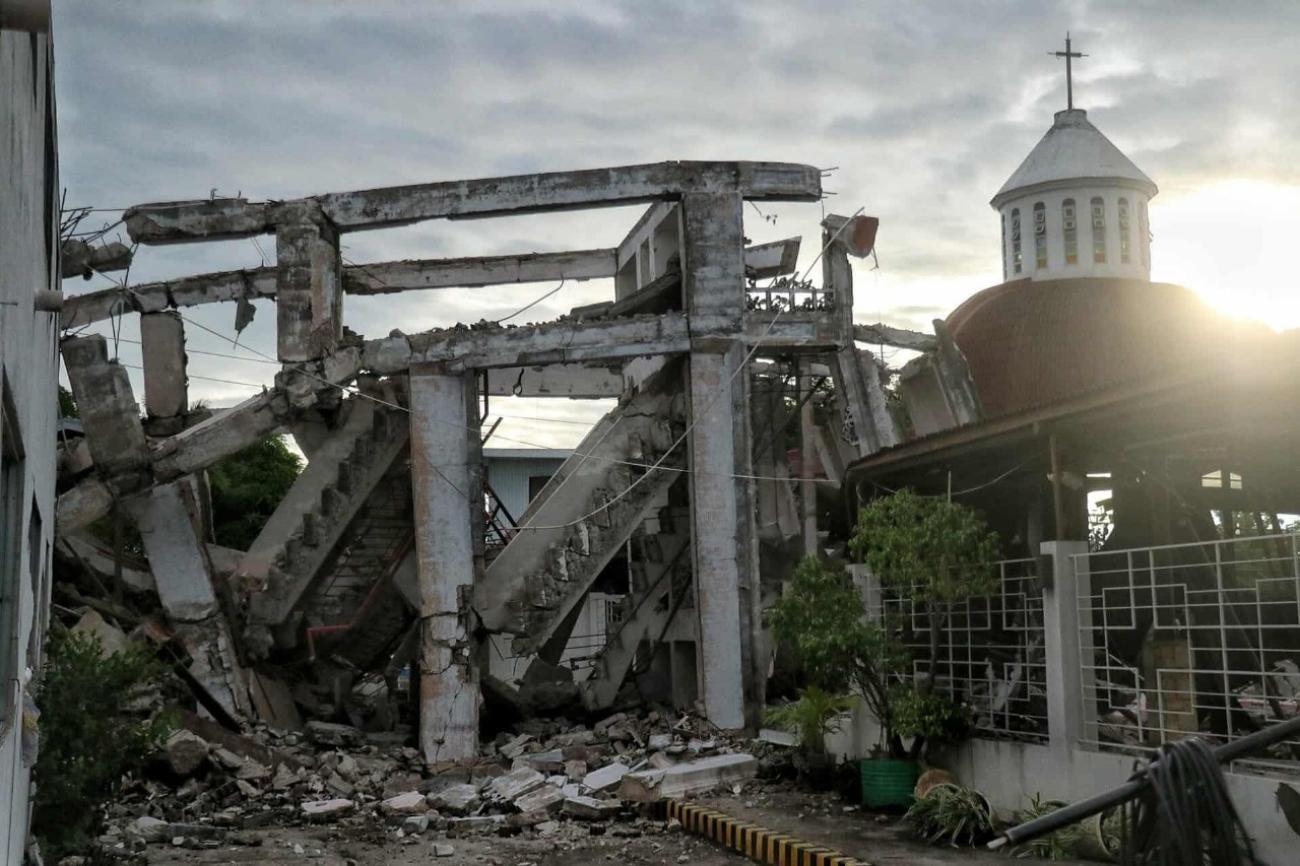CCA expresses deep sorrow over deadly earthquake in the Philippines

Photo credits: Aldo Banaynal/TheFreemanNews
Chiang Mai, Thailand: The Christian Conference of Asia (CCA) expressed deep sorrow and solidarity with the people of the Philippines following the devastating 6.9 magnitude earthquake that struck the coast of the central Philippines on 30 September 2025.
The powerful earthquake, centred between Cebu and Leyte, caused widespread destruction during the night when communities were most vulnerable. At least 72 people have lost their lives, more than 300 are injured, and several thousands have been affected. Many remain displaced, with some too fearful to return home because of ongoing aftershocks and trauma.
In a statement released on 3 October 2025, CCA General Secretary Dr Mathews George Chunakara said, “CCA joins in mourning the lives lost and prays for God’s comforting presence with the bereaved families, healing for the injured, and strength for those engaged in rescue and relief efforts. We express sympathy and solidarity with the people of Cebu and surrounding communities as they face the painful aftermath of this tragedy.”
Dr Chunakara urged CCA member churches, councils, and partners across Asia to uphold the affected communities in prayer, to accompany them with pastoral care, and to mobilise financial and human resources to extend humanitarian aid and support to survivors.
More than 340 aftershocks have been recorded since the initial quake, ranging up to magnitude 4.8, and authorities warn that tremors may continue in the coming days.
The Philippines, located along the Pacific’s “Ring of Fire,” is highly prone to earthquakes, volcanic eruptions, and typhoons, making communities especially vulnerable to recurring natural disasters.
The full text of the CCA General Secretary's statement can be found here:











